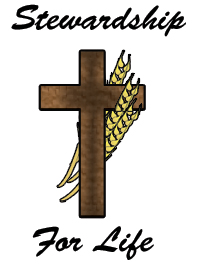 Stewardship means living a conscious, committed life in Christ. When we make the decision to live a life of stewardship, we grow in humility. We begin to realize that all we have and all we are given comes from a loving and generous God. That is a humbling realization.
Stewardship means living a conscious, committed life in Christ. When we make the decision to live a life of stewardship, we grow in humility. We begin to realize that all we have and all we are given comes from a loving and generous God. That is a humbling realization.
The word humility literally means “of the earth,” or “down to earth.” To be humble is to recognize that we are not the authors of creation but stewards of that creation. The Genesis story of creation tells us that God made the heavens and the earth and put us here as stewards, which means to care for that creation.
Genesis also teaches that as humans, we were created with dignity, which means in God’s image and likeness. We are all important in God’s sight, but we don’t need to exert that self-importance to the detriment of others or of God’s creation. That is the opposite of humility.
Jesus gave himself to us in the Eucharist under the appearance of common bread and wine. Jesus washed the feet of his apostles. There is nothing halfway about these actions. Jesus completely emptied himself revealing who he is in extraordinary ways.
A daily life of stewardship offers many opportunities to grow in humility. Choosing to let others shine in conversation, accepting comments without being defensive, giving up control, letting go of positional power so others can step in – these are all ways to practice humility. What will you do to let our loving and generous God take charge of your life?
— Diocesan Stewardship Commission

The Catholic Newspaper of the Diocese of Davenport






